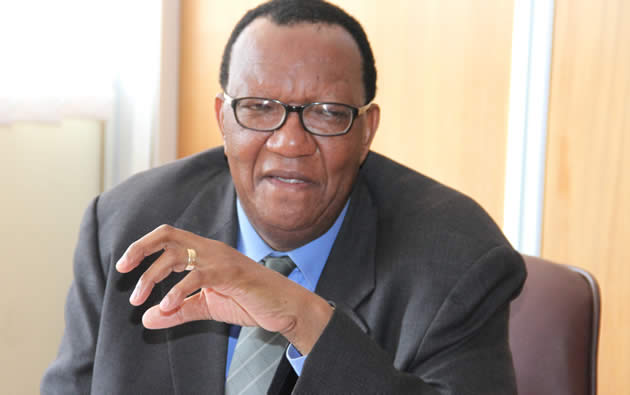Made unveils winter wheat production plan

Lovemore Zigara and Patience Mutsiwi Midlands Reporters
THE government is working on identifying strategic areas for winter wheat production as part of measures to improve the production of the crop locally and reduce imports.
Zimbabwe now heavily relies on imported wheat with farmers citing numerous challenges that affect local output.
Lack of funding, water and electricity charges and market failure are among the major hindrances.
Agriculture, Mechanisation and Irrigation Development Minister, Joseph Made said the government would identify areas such as Gokwe and Beitbridge among others where the crop would be grown under irrigation.
“There are areas with very high temperatures in the country, which don’t experience depressed temperatures during winter and if we’re to make use of water bodies we can irrigate the maize crop during winter,” he said in an interview.
“There are areas in the Lowveld such as Chiredzi, Triangle and Hippo Valley where maize has been grown during winter and the results have been quite impressive. We’re therefore using these examples as a case study and as government we’ll take this approach this winter as we move towards ensuring food security.”
Last year sugar manufacturer Tongaat Hullets put about 330 hectares of maize during winter under irrigation in Masvingo, which saw the company harvesting 1,300 metric tonnes of maize, which was distributed to the local community as part of its corporate social responsibility.
Meanwhile, Midlands Minister of State, Jason Machaya has started identifying irrigation schemes in the province for rehabilitation.
He said the province was aiming to have at least 6,000 hectares under irrigation and its targeting schemes that are already established but need infrastructural rehabilitation and those that are non-operational because of non-payment of utility bills such as power and water.
“If we manage to put 6,000 hectares under irrigation then the province will be self- sufficient in terms of its food requirements. We’re looking for quick wins and of the $25 million, which has been availed by IFAD, we’ll use our allocation to refurbish the irrigation schemes, which have been lying idle because of non-payment of utility bills as well as small rehabilitation programmes,” he said.










Comments